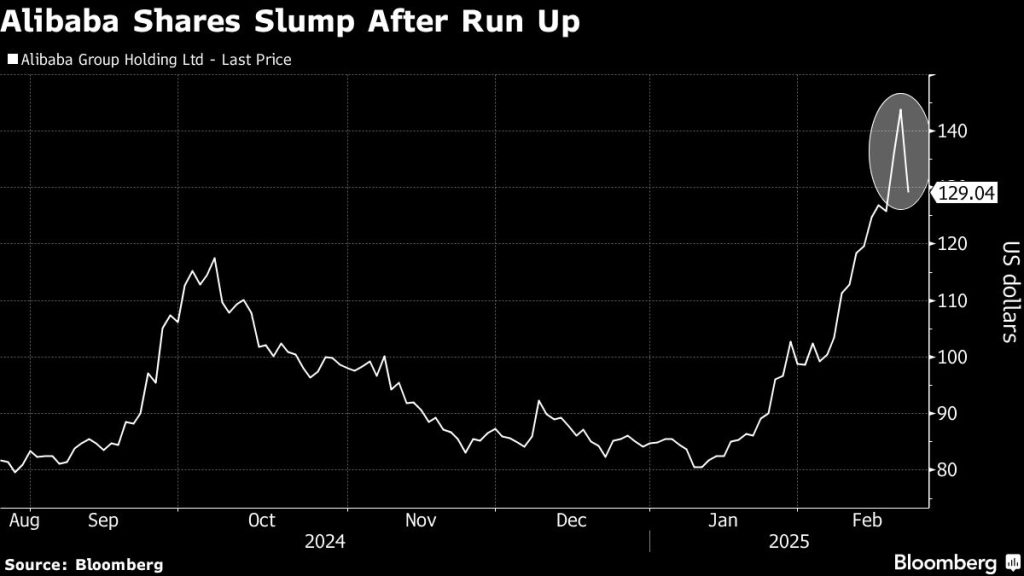
(Bloomberg) — Chinese stocks tumbled in US trading on Monday, led by the biggest selloff in Alibaba Group Holding Ltd. since 2022, after President Donald Trump’s latest directive stirred fears about deepening financial and technological decoupling between the world’s two largest economies.
Most Read from Bloomberg
The e-commerce firm’s American depositary receipts closed down 10%, the biggest decline since Oct. 2022. The Nasdaq Golden Dragon China Index tumbled 5.2%, with Bilibili Inc. and JD.com Inc. among stocks that slid more than 7%.
Over the weekend, Trump directed the committee on Foreign Investment in the US to limit Chinese spending on technology and other strategic US sectors. It added that the administration would audit foreign companies on US exchanges and review their ownership structures. The latter point has likely contributed to a bigger loss on Monday for Chinese stocks trading in the US, compared to the drop for those listed in Hong Kong and mainland China.
The declines threaten to unravel a world-beating rally in Chinese tech stocks this year, driven by optimism over DeepSeek. Having largely downplayed Trump’s initial tariffs salvo on China, investors are recalculating geopolitical risks.
The selloff is more about “sell first and ask questions later,” said Neo Wang, lead China macro analyst at Evercore ISI. “The memo is a laundry list of everything Trump wants to do. It’s more about getting some leverage and bargaining power in negotiating with China.”
Read: Potential US Curbs on China Investments May Hurt AI Shares: UBS
Meanwhile, Alibaba pledged to invest more than 380 billion yuan ($53 billion) on AI infrastructure over the next three years. The plan would make Alibaba one of China’s biggest AI infrastructure spenders.
Evercore’s Wang added in a note that a “contest is seemingly underway between Trump and Beijing over who has a bigger say over Chinese equity performance.”
Despite Monday’s selloff, Alibaba is up more than 50% for the year, while the Nasdaq Golden Dragon China Index has gained nearly 12%.
–With assistance from Yiqin Shen and Ye Xie.
(Updates throughout)
Most Read from Bloomberg Businessweek
©2025 Bloomberg L.P.

